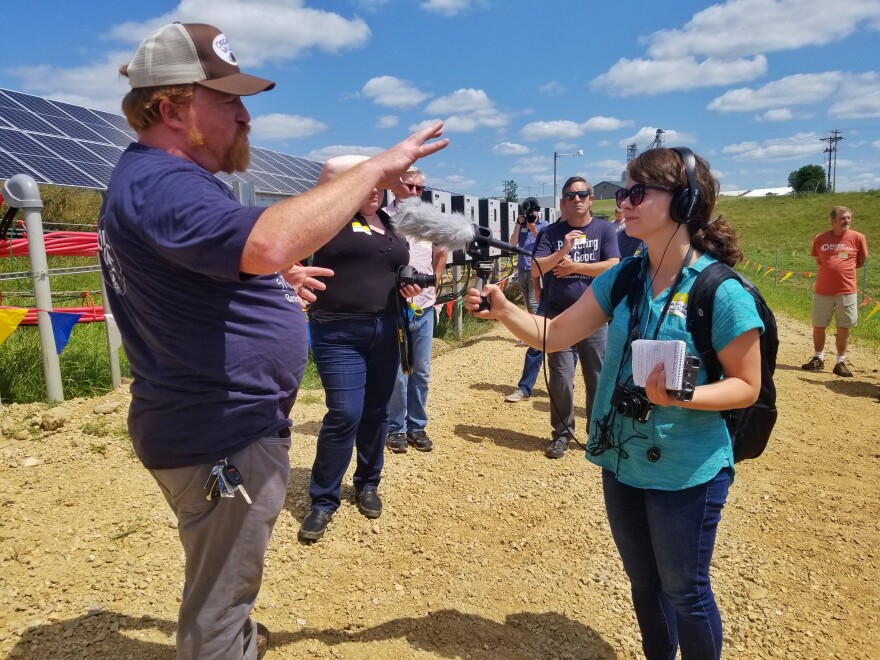Shea Baechle:
What has been your most rewarding project, or most impactful project, while working for Wisconsin Public Radio?
Hope Kirwan:
Oh gosh. It's not really a project, but I think I would say that the most rewarding kind of thing I've done at WPR so far has been, kind of, expanding our coverage of agriculture issues in the state.
And agriculture is very important to our state. It's also something that—it's an industry that's really changing rapidly. And there's been a lot of conversations about like what we as a state, and what we as even a country, want agriculture to look like in the future.
What I'm most proud of is trying to build connections with farmers, with producers, who are actually doing the work of agriculture. Improving, kind of, that sense of place in our journalism and kind of, reaching out to people and rural communities and, you know, putting their voices on the radio.
I think the more that we can do that and hear from people from a variety of communities and a variety of backgrounds, I think that's really important work.
Shea Baechle:
What does WPR do to gain and build that trust with the community?
Hope Kirwan:
That's definitely an ongoing conversation that that we're having at WPR, is how do we, you know, continue to build that trust?
I think making an effort to improve the diversity of voices that we have on the air.
We've done a big initiative actually started by another Mizzou KBIA grad—Hannah Haynes, I don't know if you've talked to her?—that effort to track and report, you know, the diversity of voices that we're putting on air. You know, where we're getting our sources from.
That's really helped us as a newsroom to kind of understand where we need to grow, how we're doing, and really kind of put our money where our mouth is when it comes to that.
You know, we're really making an effort to talk to people all over the state from all different kinds of communities and backgrounds.
I also think another thing we've done that I really enjoy is we started this initiative called WHYsconsin where people can ask questions.
And I actually got an opportunity to use that recently, and I think that's a really cool initiative to really, kind of, put the audience in the driver's seat a little bit about like, what do you what do you want to hear? Like, what do you care about? What are you curious about?
And I think that was a really big service we had during the pandemic, where people could ask us COVID-19 related questions.
And you know, we could work on improving people's understanding of what was going on in the pandemic: different programs, different initiatives, different practices, so.
Shea Baechle:
And what was your experience like at KBIA? And how did it prepare you for the career you are in now?
Hope Kirwan:
I would say my experience working in at KBIA, first as a student and then as a part time producer, taught me everything I needed to know about radio journalism.
Like, working as a student you get real world experience about what it's like to work in public radio, and work in a newsroom environment.
And that was really invaluable to me so that I was really prepared when it came time to take my first job.
The 50 Project was made possible through the support of our sponsors, long-term KBIA listeners David Black and Lee Wilkins.




